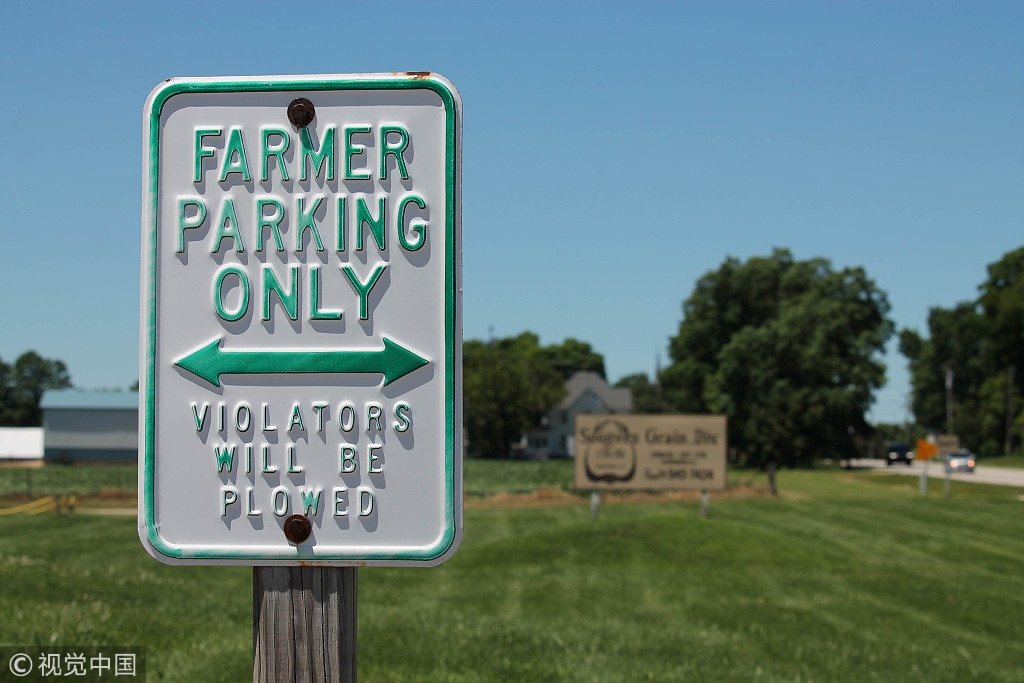Latest tariff threat impact 'adverse'
The Trump administration's threat to double down on a trade war by proposing now a 25 percent tariff on $200 billion worth of Chinese imports would have a "highly adverse" impact and will end up hurting US families and workers, researchers and industry groups warned on Wednesday.


Concerned reaction to White House floating 25% levy
The Trump administration's threat to double down on a trade war by proposing now a 25 percent tariff on $200 billion worth of Chinese imports would have a "highly adverse" impact and will end up hurting US families and workers, researchers and industry groups warned on Wednesday.
US President Donald Trump has directed US Trade Representative Robert Lighthizer to consider increasing the proposed level of the additional duty from 10 percent to 25 percent, the USTR said in a statement on Wednesday.
Lighthizer said that a public comment period for the $200 billion list would be extended to Sept 5 from Aug 30 due to the possible tariff-rate rise. Products to be targeted range from electrical machinery to leather goods to seafood.
Earlier on Wednesday, China's Foreign Ministry spokesman Geng Shuang said that US "pressure and blackmail" on trade won't work.
"If the US takes further steps to escalate trade frictions, China will inevitably come up with countermeasures to resolutely protect its legitimate rights," Geng told a news conference.
Wednesday's tariff hike is 2 1/2 times the amount originally proposed, making it the same as the tariffs the US already imposed on $34 billion in Chinese goods and on another $16 billion in coming weeks.
Much of American industry and many members of Trump's own Republican Party have expressed outrage but so far have not successfully thwarted Trump's trade policies, Agence-France Presse said in a report on Wednesday.
Matthew Shay, president and CEO of the National Retail Federation, said increasing the the tariffs' bite will increase the harm that will be done to US families and workers.
"These punitive tariffs will be passed along to US consumers and will undo all the positive gains the economy has made in recent months. Quite simply, there has been no better example of cutting off one's nose in order to spite the face," he said in a statement on Wednesday.
Jake Colvin, vice-president of the National Foreign Trade Council, said the Trump administration could be boxing itself into a corner.
"It's hard to see how this action lends itself towards a resolution to what is increasingly a trade crisis," Colvin was quoted by the AFP as saying.
Jon Taylor, a professor of political science of the University of St. Thomas in Houston, said that if the trade war escalates, there is a good chance that China will retaliate by placing tariffs on US crude oil imports and mobile phone makers like Apple, and engage in public boycotts against American products.
"No one will win through imposing tit-for-tat tariffs," Taylor said. "It's really up to the US to step away from the brink and spare China, the US and the world from a detrimental trade war."
Gary Hufbauer, a nonresident senior fellow of the Peterson Institute for International Economics, said there is a battle between the "hawks" and the "doves" within the Trump inner circle. For now, Trump is siding with the hawks as a tactic against China.
The former deputy assistant secretary for international trade and investment policy of the US Treasury said the impact of the escalating tension is "highly adverse".
"This will badly shake business confidence, and firms will delay their investment projects. The world economy will suffer," he told China Daily.
Douglas H. Paal, vice-president of the Asia Program at the Carnegie Endowment for International Peace, said the impact of jacking up the tariffs will raise costs in every direction and possibly leading to a "wrenching and costly" delinking of the US and Chinese economies.
"I doubt there is a way out if the US cannot formulate policies, priorities, personnel and processes to arrive at a list of negotiable issues," Paal told China Daily. "(It) looks bad to me."




































